What Is LTD on a Pay Stub or Paycheck? Understanding Your Disability Coverage Contributions
If you’ve ever glanced at your pay stub and wondered what “LTD” stands for, you’re not alone. LTD refers to Long-Term Disability insurance, and it shows up as a deduction on your paycheck when your employer offers this benefit.
This line item can catch people off guard, especially if they haven’t reviewed their benefits in detail. While it’s not a mandatory deduction like income tax or CPP, LTD is a crucial part of your protection plan. It helps replace a portion of your income if you’re ever unable to work for an extended period due to illness or injury. Understanding how this deduction works gives you a clearer picture of what you’re paying for, and why it matters.
Key takeaways
- LTD stands for Long-Term Disability insurance and appears as a paycheck deduction.
- Premiums may be paid by the employer, employee, or split between both.
- The way LTD is paid determines if benefits will be taxed later.
What Is LTD on a Pay Stub?
When you spot “LTD” on your pay stub, it stands for Long-Term Disability insurance. This is a workplace benefit designed to provide you with income replacement if you’re unable to work due to a serious illness or injury that keeps you off the job for an extended period, usually longer than three to six months. Most LTD plans in Canada will cover a portion of your regular earnings, often between 50% and 70%, depending on your group benefits plan.
There’s usually a waiting period, sometimes called an “elimination period,” which is often 90 to 180 days. During this time, you might use up your sick days or rely on short-term disability benefits if they’re available.
How LTD shows up on your pay stub depends on how your coverage is set up. If you and your employer share the cost of LTD insurance, you’ll see a deduction on your pay labelled “LTD” or “LTD Insurance.” If your employer picks up the full tab, you might not see any deduction at all. In most cases, LTD premiums are deducted after taxes, which means any Long Term Disability Insurance benefits you receive down the road would generally be tax-free.
On the other hand, if the premiums are paid with pre-tax dollars (which is less common in Canada), the benefits you receive could be taxable.

Having LTD insurance is a key part of financial security for Canadians, as it protects you and your family from the financial strain that can come with being off work for a long time. It’s reassuring to know you have some income support if you ever face a disabling condition, and it helps with your long-term planning and peace of mind.
LTD insurance isn’t mandatory, but many Canadian employers include it as part of their group benefits package. The amount you see deducted from your paycheque, if any, will depend on your workplace’s policy and your own participation in the plan.
If you’re ever unsure about the LTD deduction or want to know more about your coverage, it’s a good idea to check your benefits summary or reach out to your HR or payroll department. They can give you the details on your LTD policy, including how much coverage you have, the waiting period, and any important exclusions or limitations. That way, you’ll know exactly what kind of protection you have in place.
What Is LTD on Paycheck Deductions and How They Work
When LTD appears as a deduction, it reflects how much is taken from your pay to fund your disability coverage. Some companies pay the full premium on your behalf, others share the cost with you, and in certain cases, the entire premium is your responsibility.
This deduction typically comes out of your post-tax earnings. That matters because it influences the taxability of your disability benefits if you ever use them.
If you’re paying with after-tax dollars, your future LTD payments are usually tax-free. On the other hand, if your employer pays, you could owe tax on the benefits later.
Understanding Employer vs Employee Paid Premiums
The way LTD is funded has direct implications for your paycheck and potential future benefits. If you’ve never looked into who’s covering the cost, your employer, yourself, or both, now is the time to pay attention. Each arrangement has financial consequences today and in the future if you ever need to claim benefits.
Fully Employer-Paid LTD
When your employer covers the entire premium, it might feel like a bonus, one less deduction on your pay stub. However, there’s a trade-off: any LTD benefits you receive later will be taxed as regular income. That means your disability support could be reduced by 20% to 30% once taxes are applied, depending on your tax bracket.
Fully Employee-Paid LTD
Paying 100% of your LTD premium from after-tax income might sting upfront, but it offers a major advantage later. Should you ever become disabled, the monthly payments you receive from the policy will be tax-free. This ensures you get the full value of the coverage you paid for, no deductions, no surprises.
Shared LTD Premiums
Many employers choose a cost-sharing model where both parties contribute to the premium. Your portion might come out of your after-tax pay, while your employer covers the rest. In this setup, the taxability of your benefits becomes a grey area; only the employer-paid share is considered taxable if you make a claim. It’s essential to understand how your specific plan is structured to plan accordingly.
LTD Paid with Pre-Tax Dollars
If your LTD premiums are deducted before income tax is applied, you may appreciate the short-term tax break. However, this setup means your future LTD benefits will be taxed as income. It’s a strategy that helps you now, but could leave you with less money in your pocket when you’re on a fixed income due to disability.
LTD Paid with After-Tax Dollars
When LTD premiums are paid with after-tax dollars, it offers the best long-term benefit. You’re not saving on taxes today, but you are protecting your future income. If you ever go on LTD, you’ll receive tax-free benefits, which gives you greater peace of mind and predictability during recovery.
Comparison Table:
| Premium Setup | Who Pays? | Tax on Benefits Later? |
| The employer pays full | Employer | Yes |
| Employee pays with pre-tax | Employee | Yes |
| Employee pays with after-tax | Employee | No |
| Shared (after-tax portion) | Both | Partial (depends) |
How LTD Contributions Impact Your Taxes
LTD contributions play a key role in how disability benefits are taxed if you ever need to claim them. The rule is simple: whoever pays the premium, and how they pay, determines if the benefit is taxable.
If your employer pays the entire premium or if your portion is deducted pre-tax, any disability income you receive later will be taxed. If you pay your share after tax, those benefits are usually tax-free. That distinction could mean thousands of dollars in take-home pay difference if you ever need to rely on LTD support.
Why Taxability Matters
Understanding the tax status of LTD benefits is vital because it affects your financial recovery during a disability. If benefits are taxed, the monthly amount you receive could be significantly reduced, which may not match your current lifestyle or obligations. Planning ahead helps prevent financial strain when your health already demands your focus.
Reporting Contributions
Your T4 slip can provide insights into how your LTD coverage is treated for tax purposes. Employer-paid amounts may be included in Box 14 (employment income) or Box 40 (other taxable benefits). If you’re paying the premiums yourself with after-tax income, those amounts typically won’t appear on the T4 unless they’re part of a taxable benefit package.
Claiming Premiums
Although you’re paying out of pocket, LTD premiums don’t qualify for medical or other deductions on your tax return. The CRA does not consider LTD premiums to be eligible expenses. This means your contribution provides peace of mind and tax-free benefits, but no immediate return via deductions.
Lump Sum vs Monthly Benefits
Some LTD policies allow for a lump sum payout, especially after a long qualifying period or a settlement. Lump sums may be taxed differently depending on the source of the premiums and how the benefit is calculated. Monthly benefits, on the other hand, typically follow routine tax treatment, either fully taxable or tax-free, based on the premium structure.
Provincial Differences
While federal tax law covers most aspects of LTD, provincial nuances can affect reporting, eligibility for top-up programs, or interaction with other income supports. In Quebec, for example, some disability plans are structured differently due to additional payroll taxes. It’s important to consult a local tax advisor or HR representative to ensure you’re covered under the rules that apply in your province or territory.
FAQ
Is LTD mandatory on all pay stubs in Canada?
No, LTD isn’t a required deduction like CPP or EI. It’s a voluntary benefit offered by some employers as part of a group insurance plan. If your workplace doesn’t offer it, you won’t see it on your pay stub.
Can I opt out of LTD coverage if I see it on my pay stub?
That depends on your employer’s policy. Some companies allow opt-outs during open enrollment, while others require participation. It’s best to speak with your HR department to confirm your options.
What happens if I become disabled and my employer paid for my LTD?
If your employer paid the premiums, your LTD benefits will be taxed as income when you receive them. This can reduce your monthly support amount, so plan accordingly.
Taking Control of LTD Deductions on Your Pay Stub
Now that you know exactly what LTD is on a pay stub, you can make better decisions about your workplace benefits and long-term financial security. Understanding who pays for LTD, how it appears on your check, and what that means at tax time gives you control. Whether it’s time to review your pay stub or plan for future coverage, knowing how LTD works ensures you won’t be left in the dark when it matters most.
Table of Content





